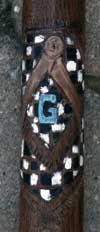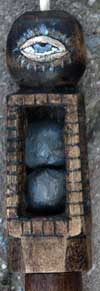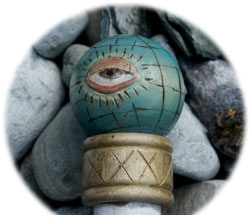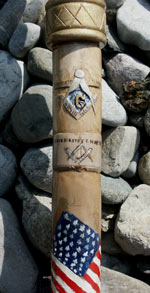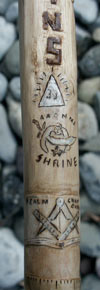
|
|
Feature ProfilesFeature Profiles are special works that illustrate extensive detail and examples of specific materials, features, themes, and artistic value. Mason's Staff's
Albert Stevens’s Cyclopedia of Fraternities (New York, 1907) estimates that nearly 10 million, of the 76 million turn of the century US population, were members of fraternal organizations. Presented to commemorate, such as the Boston Post traditional presentation of a cane to the oldest citizen of a town, carried as functional supports and means of defense, or coveted as family heirlooms, canes have been part of American society for several hundred years. Not only are canes necessary to ceremony and ritual, members express pride in their groups, military, political, patriotic, religious, sister and brotherhoods, etc through personal possessions. Canes, scepters, and staffs depicted events surrounding the fraternity, many ornately decorated with insignias, symbolism, life events, and badges of honor for the organization.
Artisans offers an extensive array of custom details to create a unique and specialized cane, staff, or walking stick. Using hand carving, wood burning, painting, tinting, embossing, and inlay.
|
||||||||
Artisans of the Valley Hand Crafted Custom Woodworking Stanley D. Saperstein Eric Saperstein Our studio and showrooms are open by appointment. Please call ahead so we don't miss you! (609) 637-0450 Fax (609) 637-0452 e-mail: woodworkers@artisansofthevalley.com |

